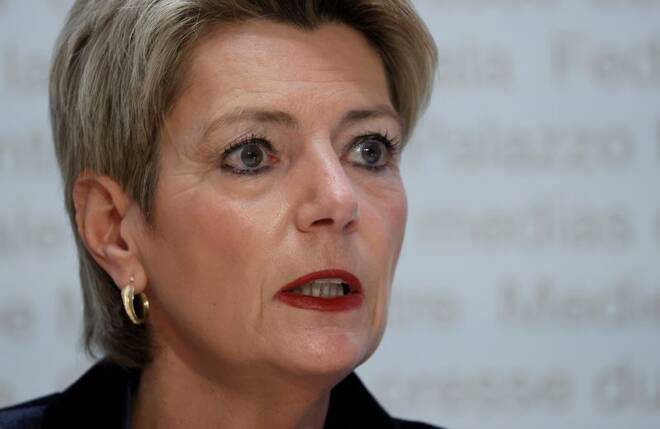Advertisement
Advertisement
Swiss parliament panel narrowly rejects curbs on Russian energy deals
By:
ZURICH (Reuters) - The foreign affairs committee of the Swiss parliament's lower house has narrowly rejected a proposal by the centre-left Social Democrats to ban physical and transit trade in gas, oil and coal by companies majority-owned by Russia or by persons with close ties to the Kremlin until the war in Ukraine ends.
ZURICH (Reuters) – The foreign affairs committee of the Swiss parliament’s lower house has narrowly rejected a proposal by the centre-left Social Democrats to ban physical and transit trade in gas, oil and coal by companies majority-owned by Russia or by persons with close ties to the Kremlin until the war in Ukraine ends.
The motion failed by a vote of 13-12 on Tuesday, heading off a broader debate of the proposal in parliament as neutral Switzerland wrestles with its role in implementing sanctions designed to punish Russia for invading Ukraine.
Moscow describes its incursion as a “special military operation” to demilitarize and “denazify” its neighbour. Ukraine and Western governments reject that as a false pretext to invade a democratic country.
So far, Switzerland has adopted European Union sanctions against hundreds of Russian individuals and entities and frozen more than $6 billion worth of assets.
Swiss-based commodity traders such as Trafigura and Vitol play an important role in handling Russian energy deals.
Most political parties favour Bern’s embrace of EU sanctions in a break with Swiss traditions of neutrality, although some members of the right-wing People’s Party – the largest in parliament – have criticised the government for going too far.
As the EU readies a new wave of sanctions, Swiss Justice Minister Karin Keller-Sutter said any Western embargo of Russian oil and gas imports needed to be done in a unified manner.
“We must first discuss this question in the cabinet. In any case, such a step would have to be coordinated internationally,” she told the Neue Zuercher Zeitung paper in an interview published on Wednesday.
(Reporting by Michael Shields; Editing by Alex Richardson)
About the Author
Reuterscontributor
Reuters, the news and media division of Thomson Reuters, is the world’s largest international multimedia news provider reaching more than one billion people every day. Reuters provides trusted business, financial, national, and international news to professionals via Thomson Reuters desktops, the world's media organizations, and directly to consumers at Reuters.com and via Reuters TV. Learn more about Thomson Reuters products:
Did you find this article useful?
Latest news and analysis
Advertisement
